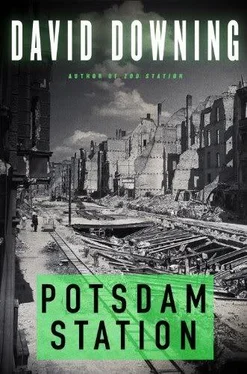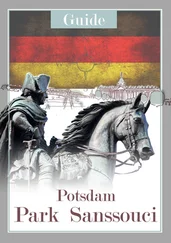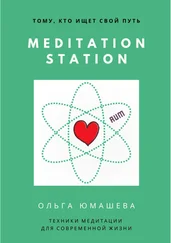David Downing - Potsdam Station
Здесь есть возможность читать онлайн «David Downing - Potsdam Station» весь текст электронной книги совершенно бесплатно (целиком полную версию без сокращений). В некоторых случаях можно слушать аудио, скачать через торрент в формате fb2 и присутствует краткое содержание. Жанр: Шпионский детектив, на английском языке. Описание произведения, (предисловие) а так же отзывы посетителей доступны на портале библиотеки ЛибКат.
- Название:Potsdam Station
- Автор:
- Жанр:
- Год:неизвестен
- ISBN:нет данных
- Рейтинг книги:5 / 5. Голосов: 1
-
Избранное:Добавить в избранное
- Отзывы:
-
Ваша оценка:
- 100
- 1
- 2
- 3
- 4
- 5
Potsdam Station: краткое содержание, описание и аннотация
Предлагаем к чтению аннотацию, описание, краткое содержание или предисловие (зависит от того, что написал сам автор книги «Potsdam Station»). Если вы не нашли необходимую информацию о книге — напишите в комментариях, мы постараемся отыскать её.
Potsdam Station — читать онлайн бесплатно полную книгу (весь текст) целиком
Ниже представлен текст книги, разбитый по страницам. Система сохранения места последней прочитанной страницы, позволяет с удобством читать онлайн бесплатно книгу «Potsdam Station», без необходимости каждый раз заново искать на чём Вы остановились. Поставьте закладку, и сможете в любой момент перейти на страницу, на которой закончили чтение.
Интервал:
Закладка:
'I thought about heading over to the Zoo Bunker,' he said, as if reading her mind. 'But even if I got there safely, and no one arrested me on the spot, what could I do? I can't order Paul to come home. He's not fourteen anymore, and he'll have a much better idea of the situation down there than I have. If he wants to desert, and he thinks he can get away with it, then he will.'
'He has this address,' Effi reminded him.
It was soon after eleven in the morning that an overheard conversation in the soldiers' canteen pointed Paul in the direction of escape. There were, it seemed, over five hundred corpses in the two towers, not to mention a vast and growing collection of amputated limps. All needed burying, but finding men willing to leave the safety of the walls and dig the necessary graves, while Soviet gunners cratered and re-cratered the area concerned, was far from easy. Why risk the living for the dead?, was most people's response to any such request.
A few thought differently. Some were claustrophobic, others beaten by the smell or undone by the stress of waiting. Some, like Paul, saw no point in dying to defend a last fortress when everything else was lost. If they were going to die, then better to die outside, where at least you could move and breathe. And where there was always the chance you might slip through a crack and keep on living.
There were around twenty of them all told, lined up outside the packed mortuary with rags across their nostrils to keep out the appalling smell. Each pair carried a bloody stretcher, but Paul, finding himself odd man out, was given two large sacks of arms, legs and heads to carry. He tried to keep the sacks off the ground, but they were simply too heavy, and once outside the walls he settled for dragging them across the grass.
The plot chosen for the burials was just to the north of the Zoo, around two hundred metres from the Gun Tower, but no one had thought to bring digging implements. A few men went back for them, and while Paul and the others awaited their return a shell struck the Control Tower, gouging a hole a metre deep in a wall three times as thick. He supposed the towers might eventually be battered into submission, but the food would run out long before that.
All the men were privates or corporals, and the only deterrents to walking off were peer pressure and a calculation that life on the streets would prove even more hazardous than life in the tower. Paul had intended burying his two sacks, but as more and more minutes went by with no sign of spades, he felt his sense of obligation fade. When others started back towards the tower, leaving their stretchered corpses on the grass, he abandoned his own bag of body-parts and hurried off towards the nearest bridge across the Landwehrkanal.
It was broken, and so, he could see, was the next one up. He retraced his steps and headed for the Zoo, whose geography he knew by heart from many childhood visits. Using one of several new gaps in the boundary wall, he worked his way between wrecked cages and cratered enclosures in the general direction of the nearby railway station. Several eviscerated antelopes were spread across one area, and a dead hippopotamus was floating in the pool. A few yards further on, he almost tripped over a human corpse, a man with a Slavic face in a tattered suit. They were about the same size, and Paul hesitated for a moment, considering a switch of clothes. He was, he realised, reluctant to shed his uniform. He told himself he'd be safer with than without it – if the SS caught him in civilian clothes they wouldn't waste time with questions.
Walking on, he found another convenient gap in the boundary wall and emerged onto the road that ran alongside the railway embankment. Zoo Station's glass roof was gone, or rather it was dispersed in a million shards. On the far pavement a group of civilians were walking eastward in close formation, like an advancing rugby scrum. Paul crunched his way across the square where he'd often met his father, and turned up Hardenberg Strasse. The railway bridge was still standing, but a gaping hole showed through the tracks.
The occasional plane flew low overhead, and only seconds went by without a shell exploding somewhere nearby, but today he felt strangely immune. It was ridiculous, he knew – maybe the concussion had left him with delusions of invincibility. Maybe the Fuhrer had received a bang on the head in the First War. It would explain a lot.
He heard himself laugh on the empty street, and felt the sting of tears. 'No one survives a war,' Gerhart had told him once.
There was a barricade up ahead, so Paul headed back down to Kant Strasse. At the farthermost end of the long straight street a tattoo of sparks split the gloom. Muzzle flashes, he thought. The Russians were closer than he'd expected.
He worked his way around Savignyplatz, turned the corner into Grolman Strasse, and came to an abrupt halt. On the far side of the street, around thirty metres in front of him, a tall SS Obersturmfuhrer was facing away from him, holding a rifle. His uniform seemed stunningly black amidst the ash and the dust, his boots insultingly shiny. Red hair peeked out from the rear of his cap.
Werner's killer.
He was about to kill again. Two men were kneeling in front of him, one protesting violently, the other looking down at the ground. The muzzle of the rifle was resting on the former's forehead.
Behind them, a line of women with petrified faces were clutching all sorts of kitchen pots. The standpipe beside them was noisily splashing water into the dust.
The rifle cracked and the head almost seemed to explode, showering the victim's companion with blood and brain. Several women screamed, and some began to sob. Paul started forward, pulling the machine pistol from his belt.
Some of the women noticed him, but none of them shouted out. The rifle cracked again, and the second man collapsed in a heap.
Paul was about ten metres away. Hearing footsteps behind him the Obersturmfuhrer turned. Seeing a soldier in uniform he offered Paul a curt smile, as if to reassure him that everything was in hand.
He was still smiling when Paul put a bullet in his stomach. He tried to lift the rifle, but a second shot to the chest put him down on his knees. He looked up with lost puppy eyes, and Paul smashed the pistol across the side of his head with all the force he could muster.
The man slumped to the ground, blue eyes dead and open.
Paul dropped the pistol. He felt suddenly dizzy, and stood there, swaying slightly, only dimly aware of the world around him. A woman was saying something, but he couldn't hear what. He could see something coming towards him, but had no idea what it was.
Someone was calling his name. 'It's me. Your Dad. Are you okay?'
'Dad?' He couldn't believe it.
Russell put an arm around the boy's shoulders. On his way to the standpipe for the second time that day, he'd been lucky enough to see the SS officer before the SS officer saw him, and had witnessed the whole scene from a corner fifty metres up the road. Unarmed, he had watched aghast as the executions took place, and only realised at the last moment that the lone soldier was his son. 'It's me. Are you okay?'
Paul had no idea what the answer to that was. 'He killed my friend, Dad,' was all that came to mind.
'You knew one of those men?'
'No, no. Not today. He killed my friend Werner. Two days ago, or three. Werner was only fourteen, and he hanged him as a deserter.' Paul started to cry and Russell cradled him in his arms, or at least tried to. His son was now taller than he was.
'We'll go to Effi's building,' he told Paul. 'It's only a ten-minute walk, but I have to get some water first.' He had left his containers further up the street, but those that belonged to the dead men were still sitting on the pavement, so he simply collected those and waited for his turn at the tap. Paul stood off to one side, staring blankly into the distance.
Читать дальшеИнтервал:
Закладка:
Похожие книги на «Potsdam Station»
Представляем Вашему вниманию похожие книги на «Potsdam Station» списком для выбора. Мы отобрали схожую по названию и смыслу литературу в надежде предоставить читателям больше вариантов отыскать новые, интересные, ещё непрочитанные произведения.
Обсуждение, отзывы о книге «Potsdam Station» и просто собственные мнения читателей. Оставьте ваши комментарии, напишите, что Вы думаете о произведении, его смысле или главных героях. Укажите что конкретно понравилось, а что нет, и почему Вы так считаете.












